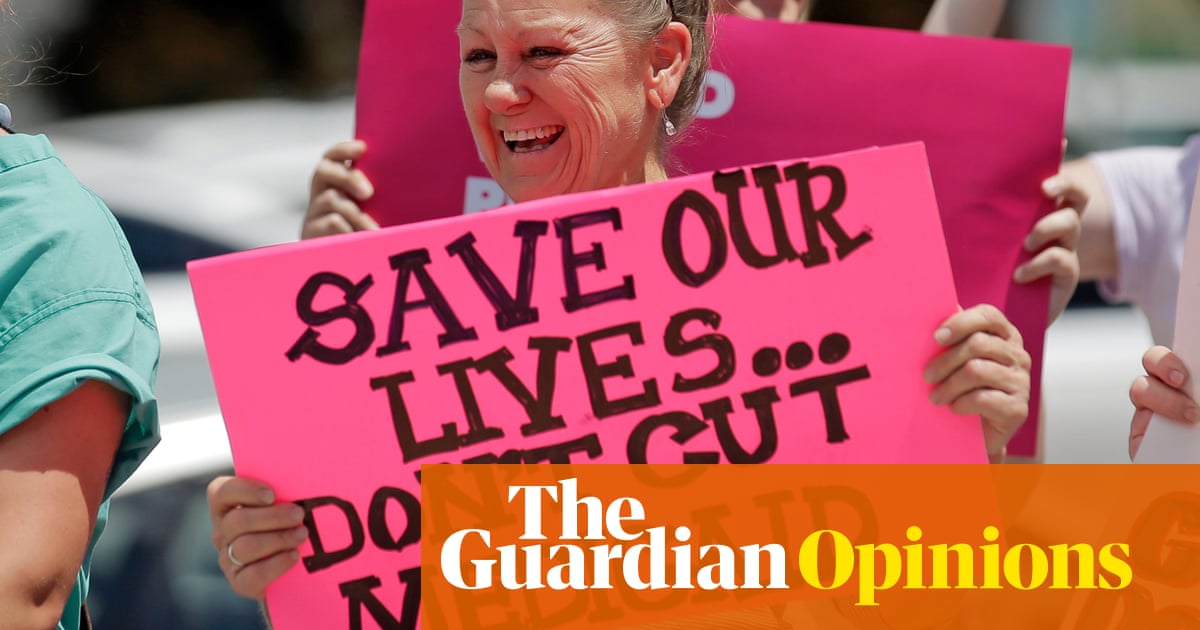Ihave held public meetings all over Vermont and in many parts of the country. At these gatherings I almost always ask a very simple question: is our healthcare system broken? And the answer I always receive is: Yes! The American healthcare system is broken. It is outrageously expensive. It is horrifically cruel.
Today, we spend almost twice as much per capita on healthcare as any other country on Earth. According to the most recent data, the United States spends $14,570 per person on healthcare compared with just $5,640 in Japan, $6,023 in the United Kingdom, $6,931 in Australia, $7,013 in Canada and $7,136 in France. And yet, despite our huge expenditures, we remain the only major country on Earth not to guarantee healthcare to all people as a human right.
While the insurance companies and drug companies continue to make huge profits, over 85 million Americans are either uninsured or under-insured. The result: some 68,000 people in our country die each year because they can’t afford to go to a doctor when they should, and more than half a million Americans go bankrupt due to medically related debt. In the US today, 42% of cancer patients deplete their entire life savings within the first two years of their diagnosis while one out of every four declared bankruptcy or lost their homes to foreclosure or eviction in 2022.
That is insane and unspeakable. Getting cancer in the US should not lead to financial ruin.
In terms of life expectancy, we live four years shorter, on average, than people in other wealthy countries, while the typical working-class person in the US lives seven fewer years than the wealthy. We also have the dubious distinction of having, by far, the highest infant mortality rate of any other wealthy country on Earth.
As bad as our overall healthcare system is, our primary care system is even worse. Today, tens of millions of people live in communities where they cannot find a doctor, a dentist or a psychologist even when they have insurance, while others have to wait months to get seen. Despite our massive healthcare expenditures, we don’t have enough doctors, dentists, nurses, mental health practitioners, pharmacists or home healthcare workers – and one out of four Americans cannot afford to purchase the medicine their doctors prescribe.
For all of these reasons and many more, I am proud to be re-introducing Medicare for All in the Senate. My colleague, the representative Pramila Jayapal, is introducing this same bill in the House.
Our legislation would provide comprehensive healthcare coverage to all without out-of-pocket expenses and, unlike the current system, it would provide full freedom of choice regarding healthcare providers.
No more insurance premiums, no more deductibles, no more co-payments, no more filling out endless forms and fighting with insurance companies.
And comprehensive means the coverage of dental care, vision, hearing aids, prescription drugs and home and community-based healthcare.
Importantly, Medicare for All would give Americans the freedom to switch jobs without losing their health insurance. Under our legislation, healthcare becomes a human right, guaranteed to all, and not a job benefit.
Would a Medicare-for-all healthcare system be expensive? Yes. But, while providing comprehensive healthcare for all, it would be significantly LESS expensive than our current dysfunctional system because it would eliminate an enormous amount of the bureaucracy, profiteering, administrative costs and misplaced priorities inherent in our current for-profit system. In fact, the congressional budget office has estimated that Medicare for All would save Americans $650bn a year.
Under Medicare for All there would no longer be armies of insurance employees billing us, telling us what is covered and what is not covered and hounding us to pay our hospital bills. This simplicity not only substantially reduces administrative costs, but it would make life a lot easier for patients, doctors and nurses who would never again have to fight their way through the nightmare of insurance company bureaucracy.
Sign up toHeadlines US
Get the most important US headlines and highlights emailed direct to you every morning
after newsletter promotion
As we speak, Republicans are working overtime to make a bad healthcare situation even worse. They want to pass a “reconciliation bill” that would decimate Medicaid and throw millions of Americans off the healthcare they have in order to give huge tax breaks to billionaires.
Obviously, we must defeat that terrible legislation. But we must do much more. We cannot simply defend the status quo in healthcare and the Affordable Care Act – legislation that has provided massive amounts of corporate welfare to the big insurance companies and big drug companies – while premiums, deductibles, co-payments and the price of medicine has soared.
The time is NOW to rethink healthcare in America. The time is NOW to declare that healthcare in our country is a right and not a privilege. The time is NOW to stand up to the greed and power of special interests who make huge profits off of a cruel and broken system. The time is NOW to pass Medicare for All.
Enacting Medicare for All would be a transformative moment for our country.
It would not only keep people healthier, happier and increase life expectancy, it would be a major step forward in creating a more vibrant democracy. Imagine what it would mean for the people of our country if we had a government that represented the needs of ordinary people and not just powerful corporate interests and billionaire campaign donors.
This is America. We can do it.
Bernie Sanders is a US senator and a ranking member of the health, education, labor and pensions committee. He represents the state of Vermont and is the longest-serving independent in the history of Congress.
